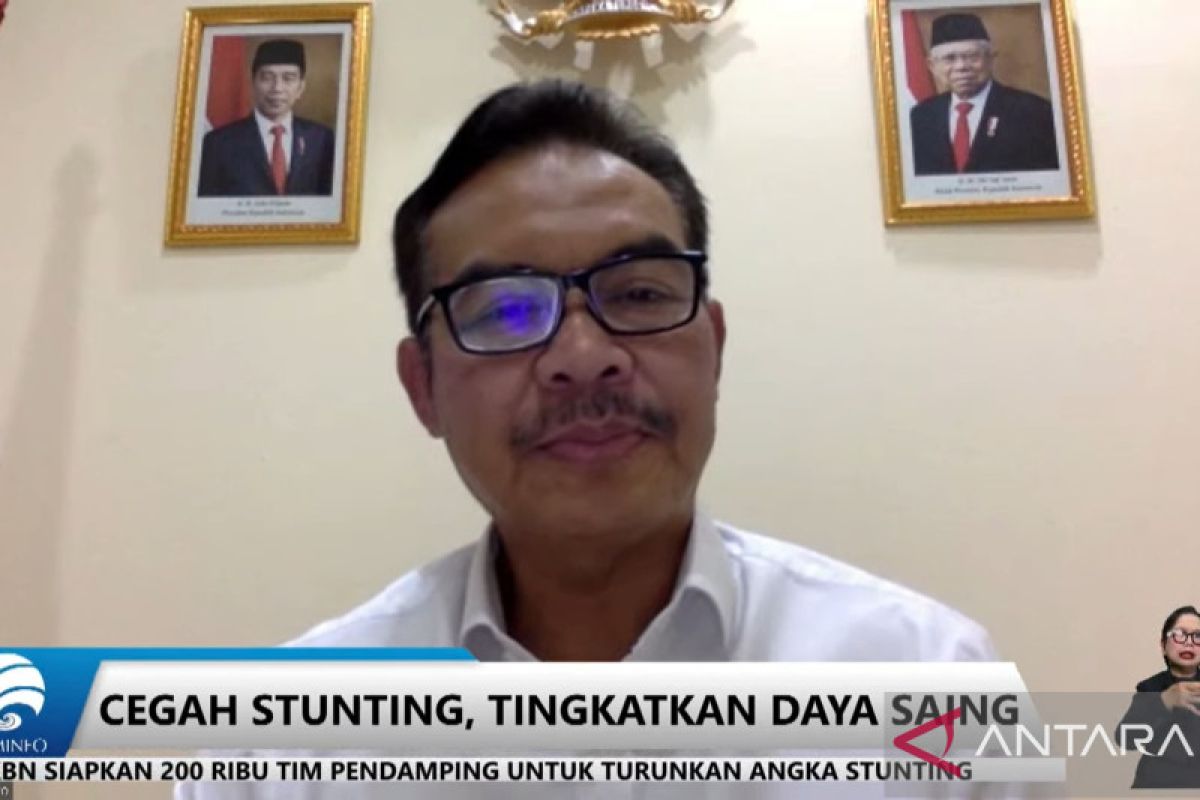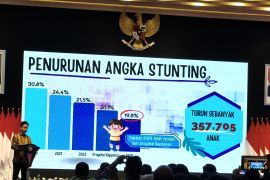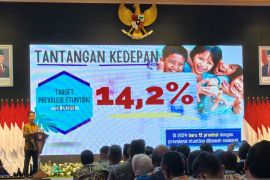During the West Freedom Forum 9 (FMB9) ‘Prevent Stunting, Improve Competitiveness’ event, he noted that, based on Basic Health Research (Riskesdas) data, the premature birth rate was 29.5 percent in 2018.
In addition to premature births, 22.6 percent of infants are also potentially born with stunting because they measure less than 48 centimeters in length.
This is because infants experience slow growth while in the womb.
The prevalence of premature births and infants measuring less than 48 cm in length has presented challenges to the government’s efforts to provide good, sensitive, and specific interventions.
"It can be imagined that almost a quarter of pregnant women give birth before time. This has also become a problem," Wardoyo said.
Related news: Increasing clean water access, sanitation facilities reduce stunting
There are only 2.5 years to go till 2024, the year by when the government is targeting to reduce stunting to 14 percent, he said adding, this necessitates a smart strategy to eliminate stunting.
The strategy can be implemented by calculating how many Indonesian infants will be born by 2024 and formulating detailed and accurate data that comprises their parents’ names and addresses to determine which families are at risk of having stunted children.
Moreover, the Family Planning program must continue to be expanded to help mothers and ensure a gap between pregnancies.
Around 4.8 million infants are likely born every year. Thus, within 2.5 years, the number of births may reach around 12 million, Wardoyo estimated.
"We should assist more or less 11 until 12 million pregnant women. Starting today, we need to truly assist those who are about to become pregnant and those who are," he said.
The COVID-19 pandemic is becoming better, he noted adding, this has made him optimistic of at least a 3-percent reduction in 2022.
"Within two years, from 2019 to 2021, we can reduce it by 3 percent. I believe that the President's target of 3 percent within one year in 2022 is achievable," Wardoyo said.
Related news: West Nusa Tenggara must address stunting promptly: ministry
Translator: Hreeloita D S, Fadhli Ruhman
Editor: Rahmad Nasution
Copyright © ANTARA 2022












